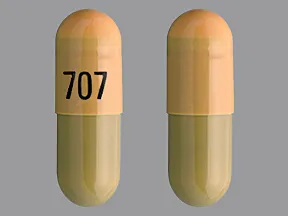

Treatment of chloroquine-resistant falciparum malariaĢ00 mg daily for at least 7 days. Primary and secondary syphilis: Non-pregnant penicillin-allergic patients who have primary or secondary syphilis can be treated with the following regimen: doxycycline 200 mg orally twice daily for two weeks, as an alternative to penicillin therapy.Ī single dose of 100 or 200 mg according to severity. Acute epididymo-orchitis caused by Chlamydia trachomatis or Neisseria gonorrhoea 100 mg twice daily for 10 days.

(Section 4.4 and 4.8)ĭosage recommendations in specific infections:ĥ0 mg daily with food or fluid for 6 to 12 weeks.įor appropriate dosing, a 50 mg strength capsule is available.ġ00 mg twice daily for 7 days is recommended in the following infections: uncomplicated gonococcal infections (except anorectal infections in men) uncomplicated urethral, endocervical or rectal infection caused by Chlamydia trachomatis non-gonococcal urethritis caused by Ureaplasma urealyticum. In the management of more severe infections, up to 4.4 mg/kg should be given throughout treatment.įor children, over 45 kg - Dose administered for adults should be used.Ĭhildren aged from birth to less than 8 years.ĭoxycycline should not be used in children aged younger than 8 years due to the risk of teeth discolouration. In such circumstance, the doses for the treatment of acute infections are:įor children 45 kg or less- Initial dose: 4.4 mg/kg (in single or 2 divided doses) with maintenance dose: 2.2 mg/kg (in single or 2 divided doses). The use of doxycycline for the treatment of acute infections in children aged 8 years to less than 12 years should be carefully justified in situations where other drugs are not available, are not likely to be effective or are contraindicated. In the management of more severe infections, 200 mg daily should be given throughout treatment.Ĭhildren aged 8 years to less than 12 years. The usual dosage of Doxycycline capsules for the treatment of acute infections in adults and children aged 12 years to less than 18 years is 200 mg on the first day (as a single dose or in divided doses) followed by a maintenance dose of 100 mg/day. Prophylaxis of malaria should be used in accordance to current guidelines, as resistance is an ever-changing problem.Ĭonsideration should be given to official guidance on the appropriate use of antibacterial agents.Īdults and children aged 12 years to less than 18 years Psittacosis, brucellosis (in combination with streptomycin), cholera, bubonic plague, louse and tick-borne relapsing fever, tularaemia glanders, melioidosis, chloroquine-resistant falciparum malaria and acute intestinal amoebiasis (as an adjunct to amoebicides).ĭoxycycline capsules is an alternative drug in the treatment of leptospirosis, gas gangrene and tetanus.ĭoxycycline capsules is indicated for prophylaxis in the following conditions: Scrub typhus, travellers' diarrhoea (enterotoxigenic Escherichia coli), leptospirosis and malaria. Rocky Mountain spotted fever, typhus group, Q fever, Coxiella endocarditis and tick fevers. Inclusion conjunctivitis may be treated with oral Doxycycline capsules alone or in combination with topical agents. Trachoma, although the infectious agent, as judged by immunofluorescence, is not always eliminated.

Since Doxycycline is a member of the tetracycline series of antibiotics, it may be expected to be useful in the treatment of infections which respond to other tetracyclines, such as:ĭue to susceptible strains of gonococci, staphylococci and Haemophilus influenzae. Doxycycline capsules is an alternative drug in the treatment of gonorrhoea and syphilis.Īcne vulgaris, when antibiotic therapy is considered necessary. Doxycycline capsules is also indicated in chancroid, granuloma inguinale and lymphogranuloma venereum. Non-gonococcal urethritis caused by Ureaplasma urealyticum (T-mycoplasma). Infections due to Chlamydia trachomatis including uncomplicated urethral, endocervical or rectal infections. Pneumonia, acute exacerbation of chronic bronchitis, sinusitis.Ĭaused by susceptible strains of Klebsiella species, Enterobacter species, Escherichia coli, Streptococcus faecalis and other organisms. Date of first authorisation/renewal of the authorisationĭoxycycline capsules has been found clinically effective in the treatment of a variety of infections caused by susceptible strains of Gram-positive and Gram-negative bacteria and certain other micro-organisms. 6.6 Special precautions for disposal and other handling.4.7 Effects on ability to drive and use machines.4.5 Interaction with other medicinal products and other forms of interaction.4.4 Special warnings and precautions for use.4.2 Posology and method of administration.Show table of contents Hide table of contents


 0 kommentar(er)
0 kommentar(er)
